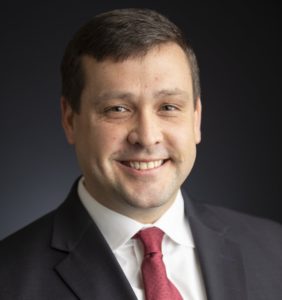If a predominantly white church can stand for racial justice and inclusivity in the heart of the South, then other Cooperative Baptist Fellowship congregations should try to follow suit, an Arkansas pastor declared during the CBF General Assembly.
“CBF churches, we can do this, and I am living proof that it can have a redemptive effect in your church and in your city,” Preston Clegg, pastor of Second Baptist Church in Little Rock, Ark., said in a June 25 workshop during the Fellowship’s virtual General Assembly.
Clegg was joined by Jeremy and Shantell Hill, co-ministers for young adults at Second Baptist.
The workshop, titled “One Church’s Journey Toward Racial Justice,” began with Clegg’s presentation of the church’s historic support of civil rights, the equality of women and other social justice causes.
Public advocacy for racial justice and inclusivity, Clegg said, is “ingrained in the DNA” at Second Baptist.
The church launched a series last fall titled “Race in the Rock.” It helped situate the congregation and Little Rock as places where hard conversations about race can take place, Shantell Hill said.
The Hills were new to town then and were impressed not only by the congregation’s organizing role in the event, but by the broad involvement it attracted from across generations, races and public officials.
Jeremy Hill said he was struck by the number of white seniors who faithfully attended and seemed genuinely to want to understand systemic racism and their part in it.
“One thing we know about racism is it’s taught, not caught,” he said.
But churches need to pay attention, too, he said. They can go a long way by including non-Anglo members in leadership, not just inviting them to church. This was an idea Clegg put into action by hiring the Hills, who are Black, after meeting them through the fall series.
“We were definitely shocked,” Jeremy Hill said.
Shantell Hill acknowledged the fear many have about the sometimes fiery protests sparked by the deaths of George Floyd, Breonna Taylor, Ahmaud Arbery and by systemic racism.
But there is a need for a spiritual fire, she added.
“There is a strong part of me that really hopes that this time will be an embarking on a new Pentecost where our spirits will be set ablaze and we will burn down the systems that continue to make this world one where injustice is normal,” she said.
Clegg said white Christians must see the connection between racial justice and Scripture. “The gospel isn’t just something that is of deep, personal transformative power, but is of broad social transformative power.”
And that realization must be followed by action, Jeremy Hill said. “That personal transformation should lead to a collective transformation and a collective walking out of the gospel.”

